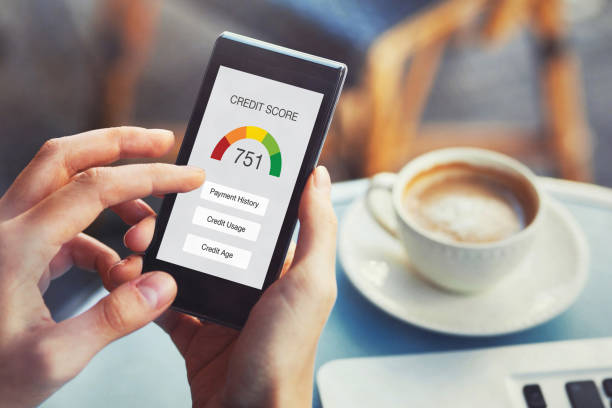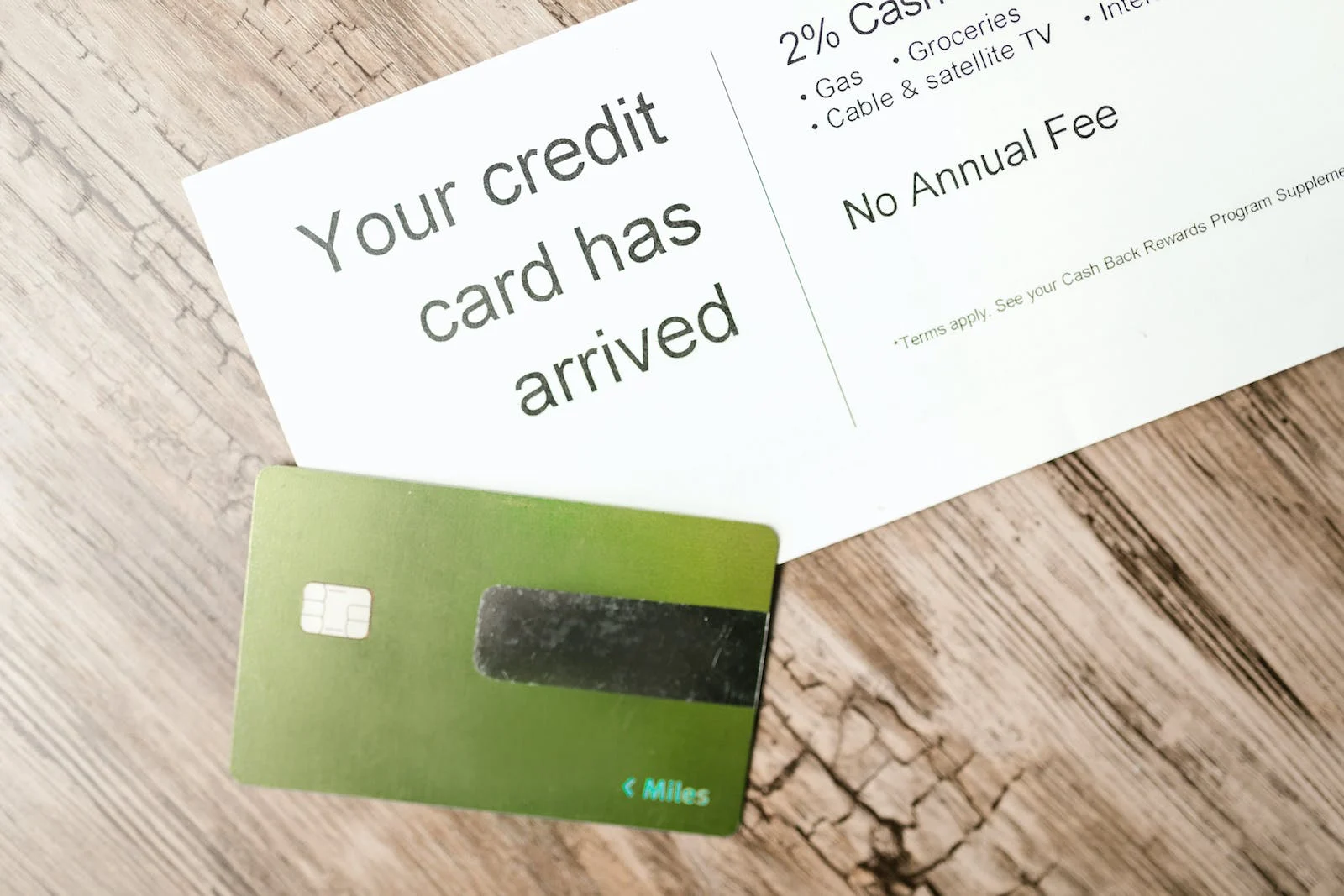You are now leaving the Bright website and entering a third-party website. Bright has no control over the content, products, or services offered, nor the security or privacy of information transmitted to others via their website. We recommend that you review the privacy policy of the site you are entering. Bright does not guarantee or endorse the products, information, or recommendations provided on any third-party website.
Think of building credit as a puzzle. You're piecing together your financial reputation, and some pieces might look like they fit, but they don't. These are credit myths, common beliefs that can steer you in the wrong direction. Imagine finding the real pieces that lead to a strong credit score and also a solid financial future.
But before we get into the topic, it is recommended to read about what credit is by Bright Money!
Let's unravel these credit myths, sort fact from fiction, and put you on the right track to building credit that truly works for you.
Myth 1: Carrying Balance on Your Credit Card is Necessary
39% of cardholders carry debt from month to month instead of paying the full balance each month. One of the most persistent myths about building credit is that you need to carry a balance on your credit card to demonstrate responsible credit use. In reality, this couldn't be further from the truth. While using your credit card and making timely payments is essential, carrying a balance from month to month can lead to unnecessary interest charges.
Your payment history and credit utilization ratio (the amount of credit you are using compared to your total available credit) have a more significant impact on your credit score. The key is to pay your credit card balance in full and on time to showcase responsible credit management.
Myth 2: Closing Credit Cards Improves Your Credit Score
Only 1.3% of Americans have the best possible credit score of 850. Some believe that closing credit card accounts can enhance their credit score, but this myth can backfire. Closing an account can reduce your overall available credit, potentially increasing your credit utilization ratio and negatively affecting your score. Additionally, closing older accounts can shorten your credit history, which is a crucial factor in your credit score calculation. It's often wiser to keep accounts open, especially if they have a positive payment history.
Myth 3: Checking Your Credit Score Lowers It
The fear of damaging your credit score by checking it is a common concern. However, checking your own credit score is considered a "soft inquiry," which does not impact your score. On the other hand, "hard inquiries" initiated by lenders during the application process can have a minor, temporary effect on your score. Regularly monitoring your credit score is a responsible habit that allows you to stay informed about your financial health without any negative repercussions.
Myth 4: High Income Guarantees Good Credit
While a higher income can help you manage your debts and financial responsibilities, it doesn't directly translate into a better credit score. Credit bureaus do not consider your income while calculating your credit score. It's your payment history, credit utilization, length of credit history, types of credit, and recent credit inquiries that play pivotal roles in determining your creditworthiness.
Myth 5: All Debts are Equal for Building Credit
When it comes to establishing credit, not all debts are created equal. Credit products (such installment loans and revolving credit) are assessed in several ways. It's possible to improve your credit history by managing revolving credit, such as credit cards, responsibly. Possessing the capacity to control and settle revolving debt might help your creditworthiness.
Myth 6: Closing Old Accounts is Beneficial
Closing old credit accounts might seem like a prudent way to simplify your finances, but it can have unintended consequences for your credit score. Part of your credit score is determined by the length of your credit history. Closing old accounts can shorten this history and potentially lower your score. Keeping older accounts open, even if they are rarely used, can contribute to a more favorable credit history length.
Myth 7: Co-Signing Has No Impact on Your Credit
It is a big financial commitment to co-sign for someone else's debt, and it might hurt your credit. Missed payments or defaults on the loan by the principal borrower may appear on your credit record, which might lower your credit score. Ensure that you can bear the financial load in the event that the borrower defaults before deciding to co-sign.
Myth 8: Paying Off Negative Items Erases Them from Your Credit Report
Paying off a debt that has gone into collections or has negative reporting does not automatically remove it from your credit report. Negative items, like late payments or collections, can stay on your report for a certain period, usually seven years. While paying off these debts is important for your overall financial well-being, it may take time for their impact on your credit score to diminish.
Myth 9: Opening Multiple Credit Cards Quickly Boosts Your Credit
Even though diversifying your credit portfolio by having a number of credit types might be beneficial, opening numerous credit cards quickly may have unintended consequences. A hard inquiry is conducted into your credit history every time you apply for a new credit card, temporarily reducing your score. Having a lot of credit cards also raises your chance of overspending and having bad money management, all of which can damage your credit.
Myth 10: Credit Repair Companies Offer Quick Fixes
The allure of credit repair companies promising swift fixes to credit woes can be tempting, but it's important to approach them with caution. Legitimate credit repair involves addressing inaccuracies on your credit report and establishing responsible financial habits. If negative items on your credit report are accurate and timely, they cannot be removed by any entity, regardless of their claims. You have the right to dispute inaccurate information on your own, without the need for costly credit repair services.

Myth 11: Paying Your Bills Early Will Improve Your Credit Score
While the timely payment of bills is undoubtedly crucial for maintaining a healthy credit score, the notion that paying bills ahead of schedule will yield an immediate boost is largely a misconception. Creditors generally report payment statuses to credit bureaus after the due date, meaning that making payments well before the due date may not have a direct impact on your credit score. The critical factor is consistently meeting payment deadlines, thereby showcasing responsible financial behavior. However, it's essential to note that consistently paying bills late can indeed harm your credit score over time.
Myth 12: You Only Have One Credit Score
It's not totally true to say that you have a single credit score. In truth, credit scoring formulas like FICO and VantageScore are used to determine your creditworthiness. Additionally, depending on the data at hand, each of the three main credit bureaus—Equifax, Experian, and TransUnion—may employ various scoring techniques. Additionally, certain sectors and lenders may use unique scoring models developed to meet their needs. To get a complete picture of your credit health, it's crucial to monitor your credit reports from all three bureaus.
Myth 13: Your Income is Included in Your Credit Report
Did you know that 34% of credit reports in the US contain errors. Contrary to common misconception, neither your salary nor any other element directly affects your credit score or shows on your credit report. Your credit history, debt commitments, and payment patterns are the main topics of credit reports. When analyzing your ability to repay loans, lenders consider each aspect of your income independently. Although a larger salary may provide you more financial freedom, credit reporting organizations do not include this factor when determining your credit score.
Myth 14: Opening a New Credit Card Always Lowers Your Credit Score
The misconception that every new credit card application negatively impacts your credit score requires clarification. While opening a new credit card may lead to a temporary decrease in your credit score due to the initial hard inquiry and potential reduction in your average account age, this effect is generally short-lived. Over time, responsibly managing the new credit card account—by making timely payments and maintaining a low credit utilization—can contribute positively to your credit mix and payment history, potentially leading to an improved credit score.
Myth 15: Paying Off a Loan Will Immediately Boost Your Credit Score
Although paying off a loan is an indication of responsible financial behavior, the immediate effect on your credit score might not be as pronounced as anticipated. Your credit score considers a range of factors, including the types of credit you utilize and the length of your credit history. While the positive impact of paying off a loan may take some time to reflect in your score, it contributes positively to your overall credit profile, potentially resulting in long-term benefits. In such cases you can try Building Credit with Credit Cards.
Myth 16: Medical Bills and Rent Always Appear on Your Credit Report
It's important to dispel the notion that all medical bills and rent payments automatically appear on your credit report. Typically, medical bills are not reported to credit bureaus unless they are sent to collections. Similarly, rent payments may or may not appear on your traditional credit report, as they are not always included in the standard credit reporting process. However, some alternative credit scoring models and platforms may incorporate rent payment history, especially if it is reported to specialized bureaus.
Myth 17: Paying Off Credit Cards Means You Should Close Them
While paying off credit card debt is a commendable step towards financial responsibility, the belief that paying off your credit cards necessitates their closure is not necessarily accurate. In fact, closing credit card accounts after paying them off could have unintended consequences. Keeping credit card accounts open, especially those with a positive payment history and long credit history, can contribute positively to your credit profile by extending your credit history and potentially improving your credit utilization ratio.
Myth 18: Bankruptcy Erases Bad Credit History
Although bankruptcy gives people a new financial start, your credit history is not entirely erased. Depending on the sort of bankruptcy you file, the effect on your credit record may change. A Chapter 7 bankruptcy typically lasts 10 years on your credit report, but a Chapter 13 bankruptcy lasts seven years. The inclusion of a bankruptcy on your credit record may make it more difficult for you to get credit in the future, even while it can help you get your finances back on track.
Myth 19: You Can't Build Credit Without Debt
Contrary to the belief that debt is essential for building credit, it is entirely possible to establish a positive credit history without accumulating significant debt. Responsible use of credit, such as utilizing a credit card for small, manageable purchases and consistently paying off the balance in full every month, can demonstrate your ability to handle credit responsibly. It's important to emphasize that building credit is about using credit wisely and maintaining a consistent track record of timely payments, rather than relying on debt to build credit.

Conclusion
Building and maintaining good credit is a vital aspect of your financial journey. To navigate this path successfully, it's crucial to separate fact from fiction. By dispelling these common myths about building credit, you're better equipped to make informed decisions that positively impact your credit score and overall financial well-being. Remember, responsible credit use, timely payments, and a proactive approach to managing your credit are the true keys to a solid credit foundation.
References
- https://www.bankrate.com/personal-finance/credit/how-to-build-credit/
- https://finmasters.com/credit-score-statistics/#key-findings
Recommended Reads:
How to read a credit card statement?
FAQs
1: Does paying my bills early improve my credit score?
Paying bills early doesn't directly improve your credit score. Creditors report payment statuses after the due date. Timely payments matter most; paying early won't hurt, but it doesn't guarantee a higher score.
2: How many credit scores do I have?
You have multiple credit scores. Different scoring models and credit bureaus calculate scores based on available data. Lenders may also use tailored scoring models.
3: Does my income affect my credit score?
No, your income isn't part of your credit report or score. Lenders assess income separately to determine your ability to repay loans.
4: Does opening a new credit card always lower my score?
Opening a new card can temporarily lower your score due to inquiries and age of accounts. Responsible management can lead to a positive impact over time.
5: Will paying off a loan immediately boost my credit score?
While paying off a loan reflects responsibility, the impact on your score may not be instant. Other factors like credit mix and history play a role.
6: Do medical bills and rent always affect my credit?
Medical bills and rent payments are reported if they go to collections. Some scoring models consider rent, but not all.
7: Does checking my credit score lower it?
Checking your own score (soft inquiry) doesn't harm your score. Only inquiries from lenders (hard inquiries) have a minor, temporary impact.
8: Should I close credit cards after paying them off?
Closing cards isn't necessary. Keeping them open, especially older ones, can help your credit history and utilization.
9: Does bankruptcy erase bad credit history?
Bankruptcy offers a fresh start, but it stays on your credit report for years, affecting your ability to obtain credit during that time.
10: Can I build credit without debt?
Yes, responsible use of credit, like using a credit card for small paying the balance and purchases, can help you build credit without accumulating debt.
11: Do I need to carry a balance on my credit card to build credit?
No, carrying a balance isn't necessary. Making payments on time and having a low credit utilization are more important.
12: Will my credit score drop if I co-sign a loan for someone?
Co-signing makes you equally responsible for the debt. If payments are missed, it can negatively affect your credit.
13: Will closing old accounts improve my credit score?
Closing old accounts can shorten your credit history and impact your score. Keeping them open can be beneficial.
14: Can credit repair companies quickly fix my credit?
Be cautious of claims. Legitimate credit repair involves disputing inaccuracies; quick fixes are unlikely.
References:
1. https://www.bankrate.com/personal-finance/credit/how-to-build-credit/



